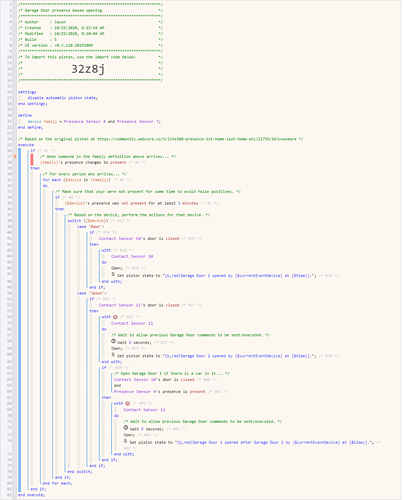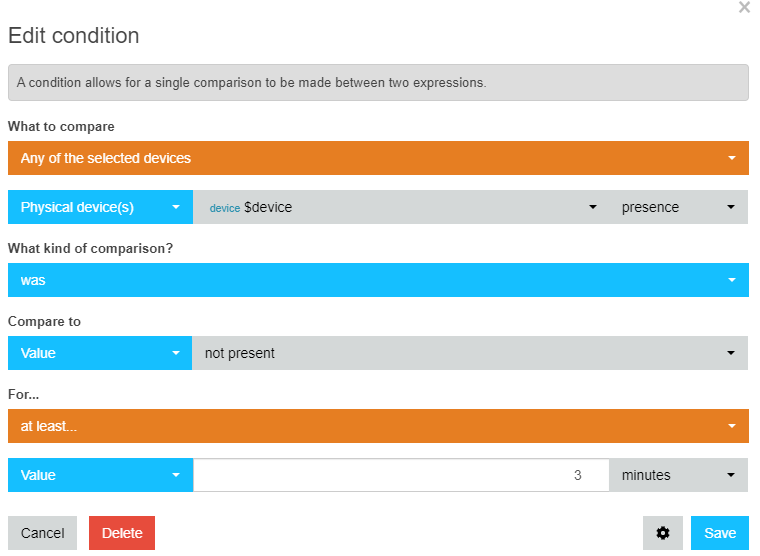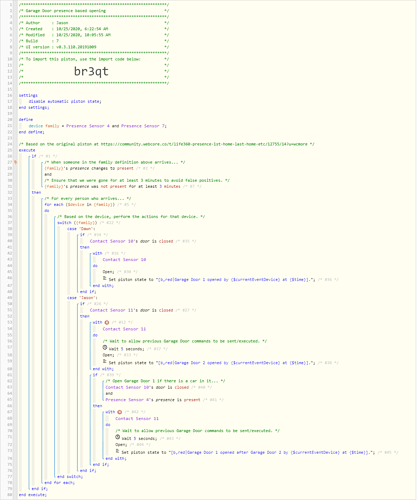1) Give a description of the problem
No problem, but rather a logic check of the piston. I am venturing out to use device definitions and case switching.
2) What is the expected behaviour?
When either of the two defined presence sensors arrive, based on who arrives, open the respective garage door(s).
3) What is happening/not happening?
I have not implemented this piston, but wanted to get a logic check from someone
4) Post a Green Snapshot of the piston![]()
5) Attach logs after turning logging level to Full
10/25/2020, 8:22:22 AM +561ms
+1ms ╔Received event [Home].test = 1603632142561 with a delay of 0ms
+53ms ║RunTime Analysis CS > 22ms > PS > 7ms > PE > 23ms > CE
+55ms ║Runtime (43291 bytes) successfully initialized in 7ms (v0.3.110.20191009) (53ms)
+57ms ║╔Execution stage started
+84ms ║║Condition #2 evaluated false (22ms)
+85ms ║║Condition group #1 evaluated false (state did not change) (24ms)
+89ms ║╚Execution stage complete. (33ms)
+90ms ╚Event processed successfully (90ms)




